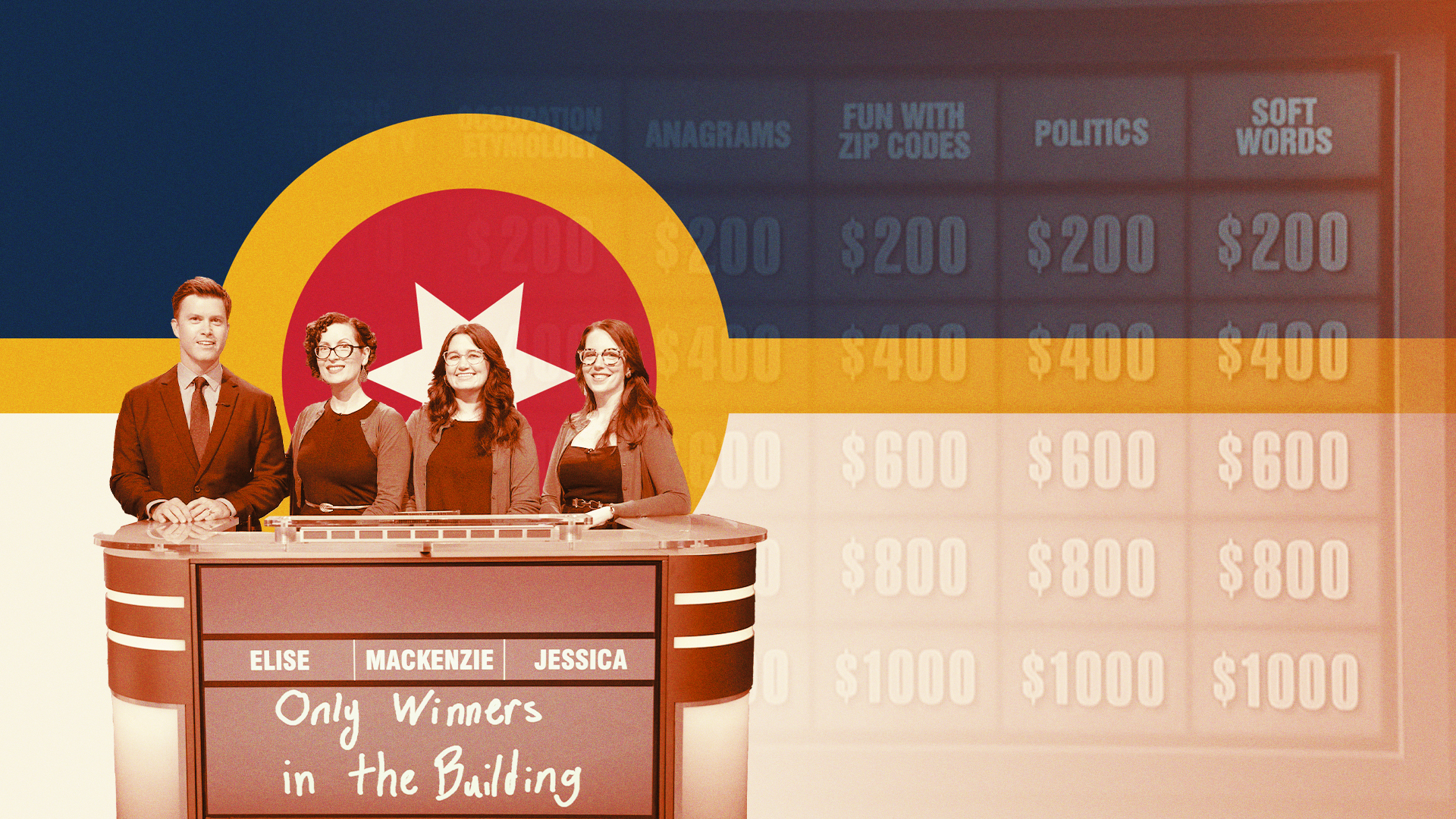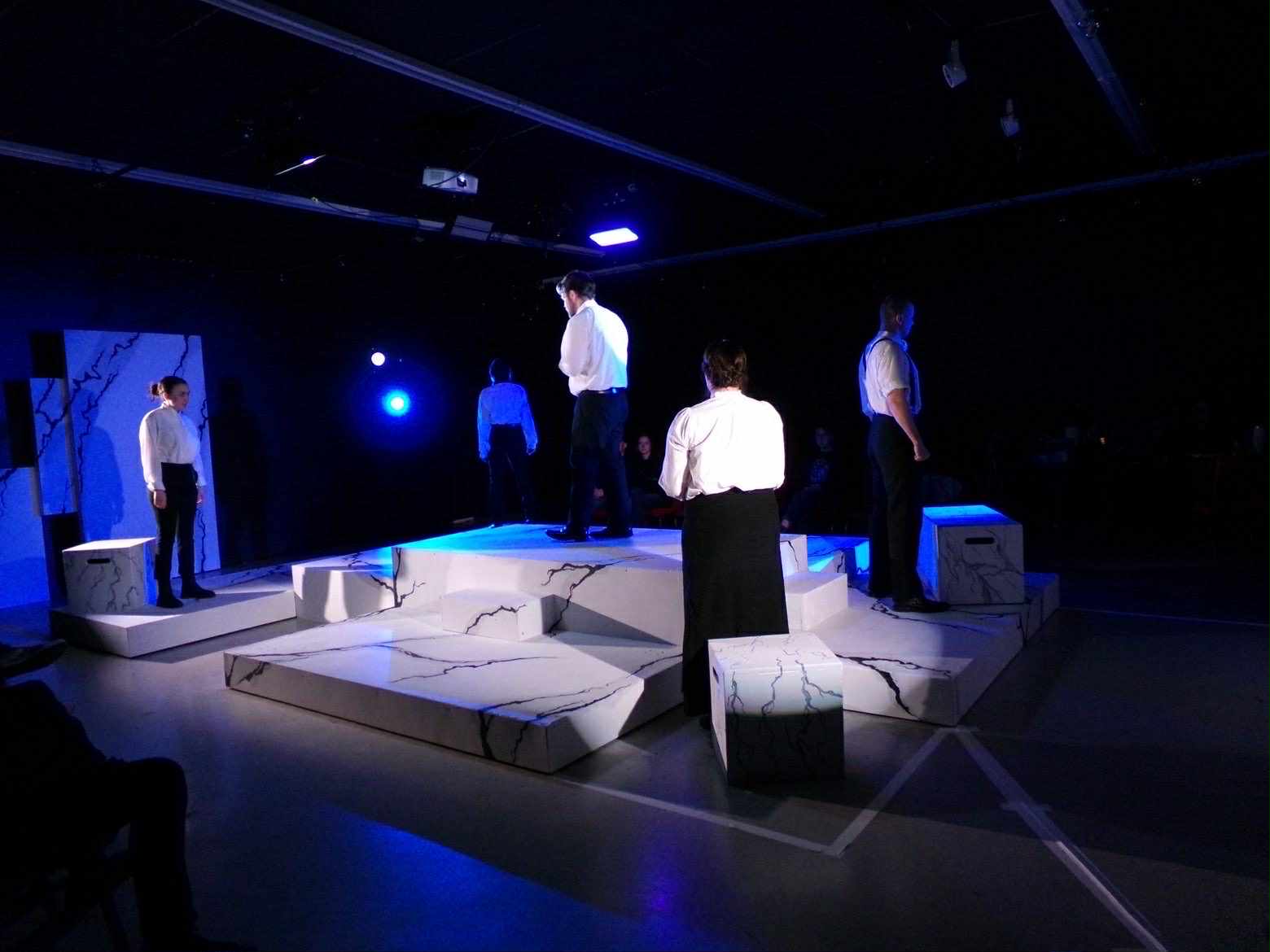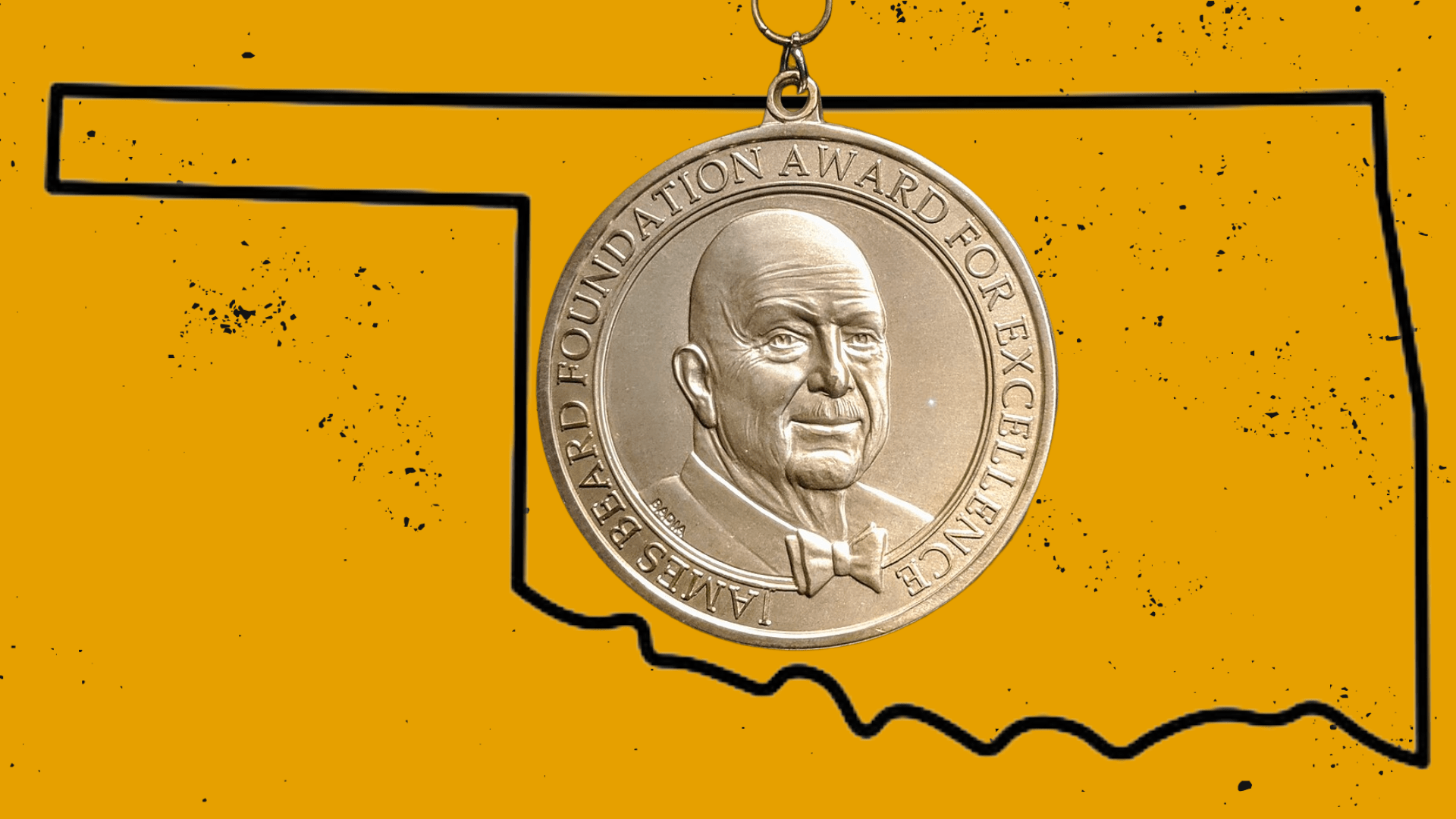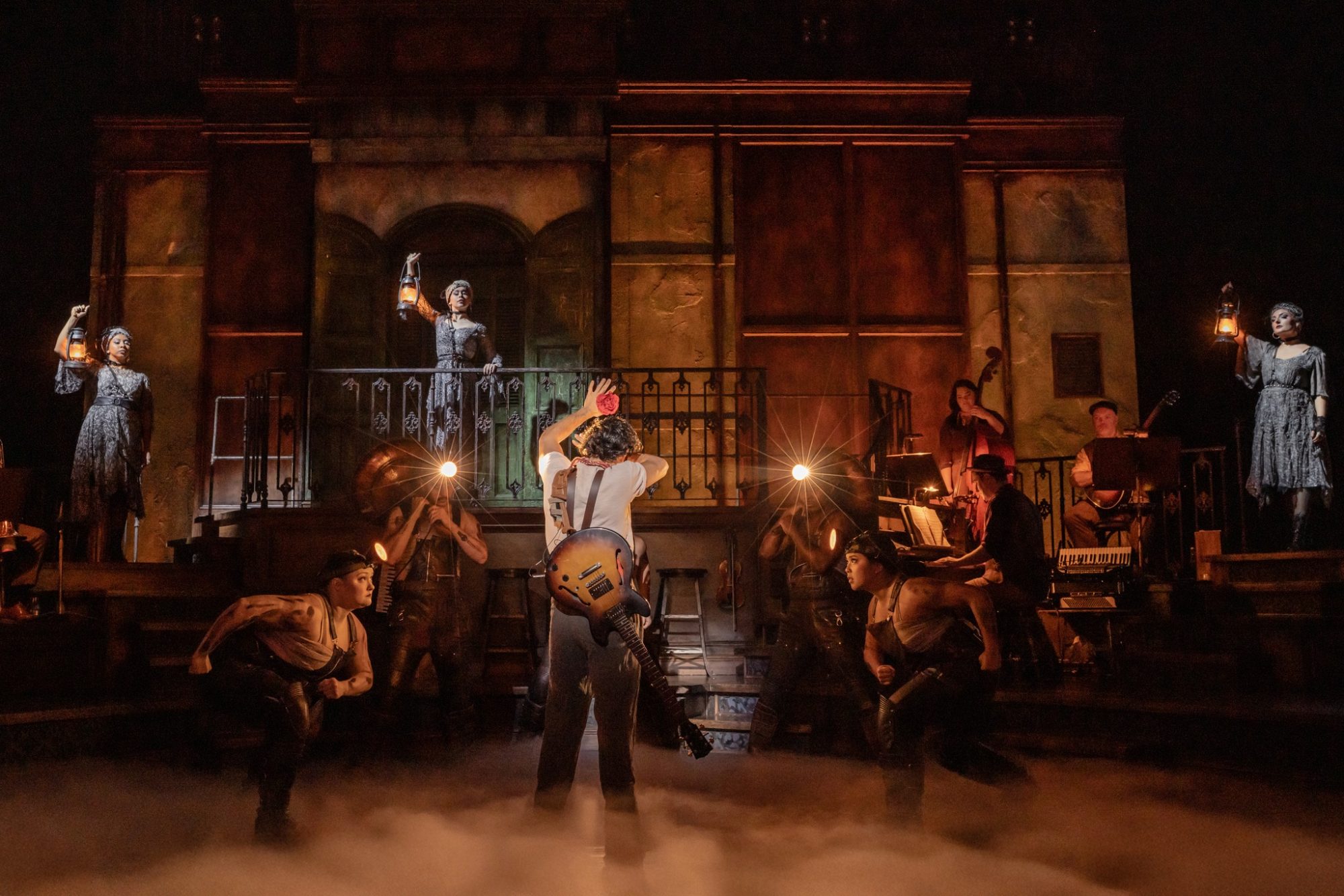Perhaps the nerdiest thing about me (and I say that as a point of pride) is how much I love to play the show “Jeopardy!”.
I use the word “play” intentionally. When I watch at home, I’m not just passively enjoying the entertainment from the comfort of my couch; I’m screaming out answers, I’m cheering like a stage mom for power players, I’m dancing on their graves when a dark horse sneaks up for a come-from-behind victory. In my mind, I’m shoulder to shoulder with these people, cranking through clues and betting big in Final Jeopardy!.
But of course, that’s only in my mind. In reality, I’m a Couch Warrior, totally obsessed but too afraid of bombing to actually apply to the show. Instead, I hide out at home, while the brave, real-life brainiacs put themselves out there and compete for cash.
The truth is, I’ve never thought “Jeopardy!” was for “people like me,” which is to say, a thirty-something woman from Tulsa who came up through public school and now works in brand strategy. “Jeopardy!” is for geniuses! Mathematicians! The MIT nuclear physics professor working on a PhD who plans to use his winnings to finance—you guessed it—yet another PhD. In my mind, “Jeopardy!” is for Ivy Leaguers, the coastal elite, and the professionally smart.
… Right?
Color me surprised to learn that Tulsa has been churning out regular human “Jeopardy!” champions for years. The show’s J! Archives show 32 past players from Tulsa, where the city’s pub trivia and quiz bowl subcultures offer a “Jeopardy!” pipeline of sorts. Among Tulsa’s private school fundraiser circles, trivia nights are ubiquitous, and it’s common to find the city’s former “Jeopardy!” contestants playing on a team, heckling question-writers, and blasting buzzers in the name of a good cause.
But dig into the J! Data and you’ll see that some of Tulsa’s recent players have one other thing in common. In 2024, every contestant representing Tulsa on “Jeopardy!” except one was a woman who is or has been a teacher.
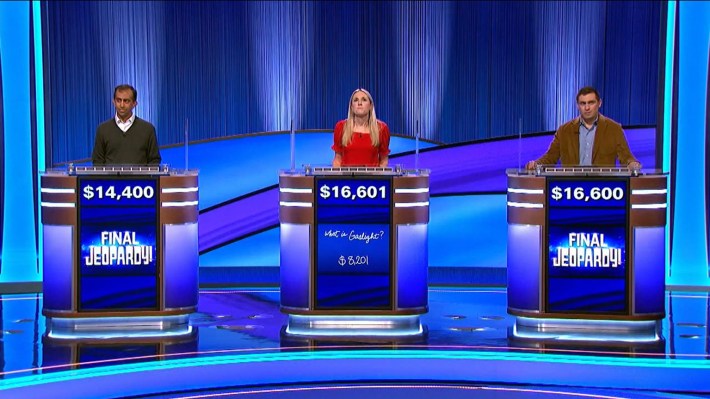
When I watched Marquette preschool teacher Courtney Schooley compete on “Jeopardy!” last November, her story grabbed me: a preschool teacher?! From Tulsa?! By the end of the episode, Schooley had nearly overtaken the game, coming up just a dollar short in Final Jeopardy!, despite betting it all.
It’s unfortunately a standard way to lose on “Jeopardy!”, where players don’t just win for having the right answers; in actuality, winning usually comes down to how much a player is willing to bet on themselves, and how well those bets pay off in the end. Even though Schooley walked away with second place and a consolation prize of $3,000, I whooped out loud for her, proud to see an underdog from Tulsa flipping the script, and inadvertently putting my own inner critic in its place.
There’s something hopeful about rooting for an underdog, but is that even a fair characterization? Why was I surprised that a teacher from Tulsa would do so well in the first place? Maybe it’s internalized sexism, or that pervasive sense of Low Tulsa Self-Esteem™ that plagues so many of us. Or maybe Oklahoma politicians’ devaluation of our educators had seeped into my own thinking.
I’ll Take ‘Famous Tulsa Educators' For $800
When you consider the records of Tulsa’s recent female competitors, there’s hardly an “underdog” quality to them at all. Of Tulsa’s 32 competitors, 14 are women, and the three of them who appeared on the show in 2024 are all educators. In addition to Schooley, there’s retired schoolteacher Patti Palmer, who worked in education for 34 years, and who won nearly $40,000 across her appearances; and Tulsa School of Arts and Sciences math teacher and Quiz Bowl coach Mackenzie Jones, who won over $200,000 in a runaway eight-game streak. Jones has since played under four different hosts, and has been invited back as a tournament competitor, most recently for Pop Culture Jeopardy! earlier this month on a team titled “Only Winners in the Building.” Collectively, these women’s winnings total over a quarter million dollars.
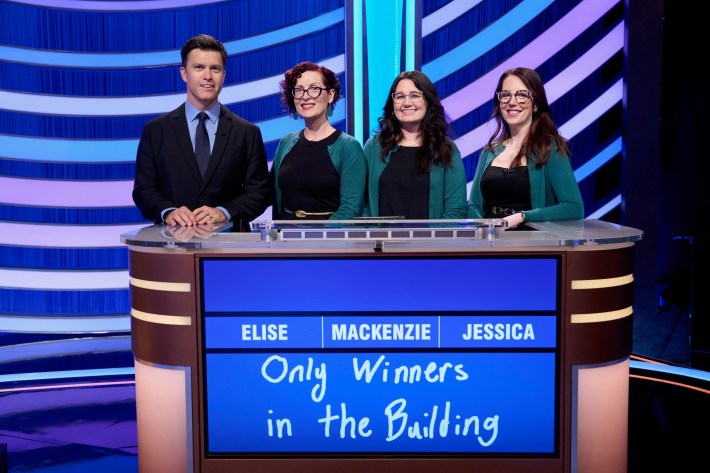
What’s the secret of these educators turned “Jeopardy!” powerhouses? Is there a connection between being a great teacher and being great at “Jeopardy!”?
Lenzy Krehbiel—who competed on “Jeopardy!” in 2007 and finished with winnings robust enough to pay for a master’s degree, and who now reports on education for the Tulsa World—says it’s probably more of a happy coincidence than a causal pattern. Nevertheless, it paints an interesting picture of the value that Tulsa teachers are bringing to the “Jeopardy!” stage—even if their professional contributions aren’t appreciated by, say, the Oklahoma State Department of Education.
“Every teacher could be doing something else, but we all want to be there,” says Mackenzie Jones. “I genuinely believe education is the way people can change their lives, and that’s more important to me than making $20,000 more per year.”
Of course, I imagine the “Jeopardy!” winnings make that pill easier to swallow.
These women clearly have a lot going for them: they’re smart enough to pass “Jeopardy!”’s 50-question online test with a top score, personable enough to ace an in-person interview with the producers, consistent enough to perform well in a live audition game, and memorable enough to get invited out of a pool of potentials to finally come tape a show. “Jeopardy!” tapes a staggering five episodes a day at Sony Pictures Studio, so if a player wins, they keep going until they lose. And in both Palmer and Jones’ case, their streaks didn’t just pull large winnings. They earned coveted invitational spots in subsequent seasons—a testament to their all-around abilities.
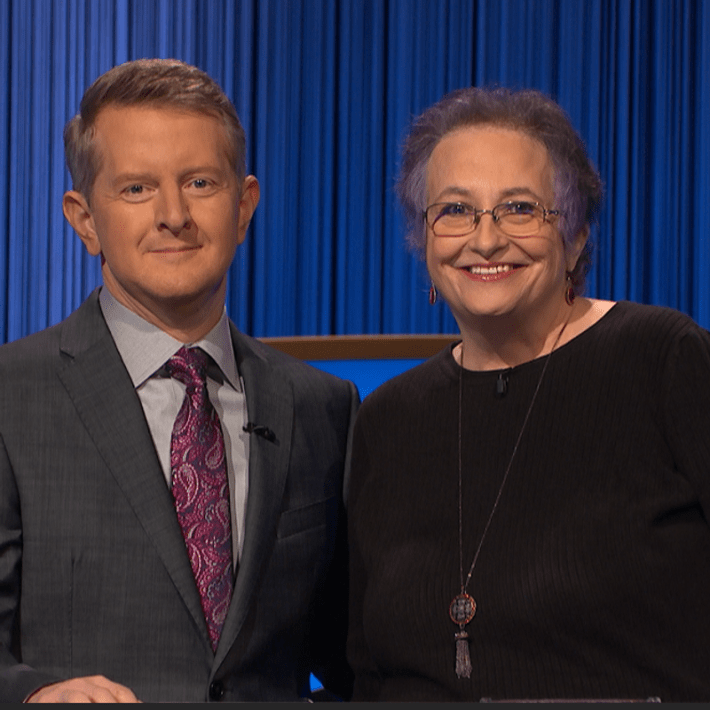
“I bet a lot of famous people have thrown up on the Sony lot."
But what actually makes someone great at “Jeopardy!”? There are the obvious elements: book smarts, street smarts, camera charisma, a willingness to buckle down and study. But I’d posit the two most essential elements are harder to develop than they seem: an ability to fail without falling apart, and the bravery to bet on yourself.
“I was such a Hermione Granger growing up,” Schooley tells me and Jones over lunch at Prism Cafe, playfully shooting a hand up into the air. “In class, my teachers would ask, ‘Does anyone besides Courtney know the answer?’ Quiz Bowl was my sport.”
Despite being a confident student, Schooley is extremely shy. The idea of stepping foot onto the “Jeopardy!” stage, where the possibility of failure would loom larger than ever before, was terrifying.
“Every time I‘d think about trying out, I panicked,” she says. “I had a huge fear of failure because everything [in school] had always come so easily to me up to that point. It still scares me! If the game weren’t televised, that’d be my dream.”
“Truly,” Jones agrees with a laugh. “It’s like the worst way to find out [you might not be as good as you think you are]. Eight million people watch the show every day.”
“But when I turned 30,” Schooley recalls, “I said, this is going to be the decade that I’m not afraid anymore. It took me a while, but at 39, I finally went on the show. But I was telling myself ‘“Jeopardy!” is for other people’ up until the day I was playing.”
“And I wonder how many of [the men] struggle with a fear of not being good enough?” Jones asks.
Jones says she didn't really see herself as an underdog in her original appearance; she notes that nerves tend to level the playing field for new players, unless you're going up against a multi-day champion. And although she knew some of her competitors might have had a leg up in terms of age or time to learn or greater formal education, Jones had a certain kind of edge even over them.
"I felt like I had a speed advantage from practicing with Quiz Bowl students and a lot of pop culture knowledge that helps even in the original show. But in the Invitational Tournament, I definitely felt like an underdog,” Jones says. “Not only were some of the top earners of all time in the mix, but many people had some sort of trivia as their main focus or job.
"I spend nine-ish hours of the day at school, mostly focused on advanced math and talking girls through breakups, while other contestants are on scheduled study sessions for months at a time," Jones says. She’s quick to point out that she doesn't think that's unfair, just different.
"In Pop Culture, I felt the most prepared for anything in my life,” she says. “Other than being ten weeks pregnant and throwing up all the time, I knew my teammates were brilliant, and that I had been chronically online for long enough to be helpful. Even though we didn’t make it to the finals, I think we played so well and I had the most fun watching it back."
"Also," she adds, "I think it’s kind of iconic to be sick on the Sony lot. I bet a lot of famous people have thrown up on the Sony lot."
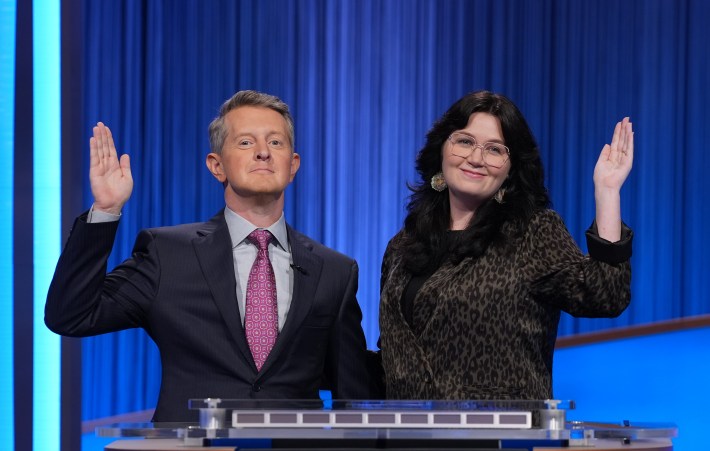
Learning How To Fail
I ask the contenders what it actually means to be “good enough” for “Jeopardy!”—if it’s just about being smarter than your opponents, or if there’s something else at play. After all, “Jeopardy!” is a game with unique challenges to navigate. For example, there’s the buzzer, and knowing when to press it: only after the clue has been fully given and the lights on the side of the gameboard signal to contestants that buzzing is open. (Ringing in too early risks a player being locked out for a quarter second.) Add on remembering to frame answers in the form of a question, category breadth and clue framing, and the sheer pressure of a live game show, and bombing can easily befall the most brilliant players.
“It’s actually a huge divide among ‘Jeopardy!’ people,” Jones says. “I feel like ‘Jeopardy!’ is such a specialized skill set of memorizing things, and that it’s not really indicative of intelligence. More like, can you recognize something and say it the fastest?
“Whereas as a teacher, I want to see comprehension and creativity. It’s so far from what I want to see my students doing, just memorizing things. [‘Jeopardy!’] makes me a better teacher, but being a teacher made me a better contestant, because I’m constantly telling my students, ‘If we get something wrong, we’ll fix it and move on.’ So I can just ring in and get something wrong. The psychology part of it really helped there: what I want to see for my students is what I want to see for myself.
“But there are some people for whom winning ‘Jeopardy!’ is tied to their intelligence, and incredibly important to their vision of self-worth. I think the more I've been on ‘Jeopardy!’, the less I feel that way.”
While Schooley’s preschool students are too young to understand the badassery of her “Jeopardy!” career, Jones’ TSAS students wasted no time investigating her chops.
“I had a kid walk up to me with a picture of me and Trebek together on an iPad asking if it was me. Another said, ‘My grandma recognized you because they’re all watching ‘Jeopardy!’ at the Dialysis Center!’” Even for high schoolers, thanks to the show’s ubiquity, being on “Jeopardy!” carries a certain kind of endorsement.
“Nothing is more helpful to me,” Jones adds, “than when a kid is like, ‘I’m so embarrassed I got that wrong.’ I’m like, there are twelve people in this room. Eight million people repeatedly saw me say nonsensical answers. No one will remember, no one cares. It’s all good.”
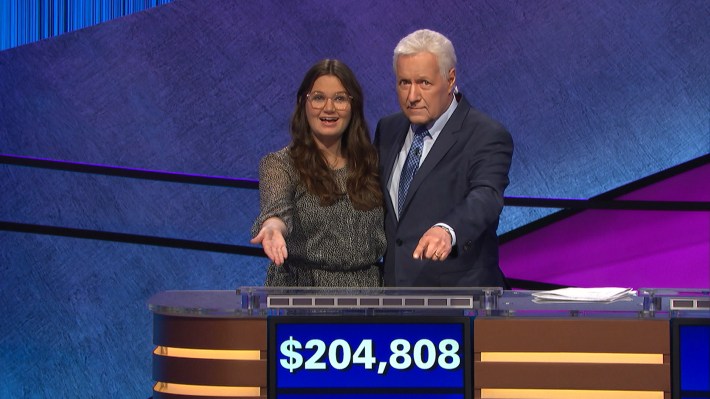
If there’s one lesson for these teachers to pass on to students from the “Jeopardy!” stage, it might just be this: the smartest people are the ones that know how to take a swing, miss, and move on. These are the players who can bomb in front of millions of viewers one minute, then dust off and bet big on themselves the next. On the stage or in the classroom, this is how successes are made: in learning how to fail without the fallout.
In this way, these women aren’t underdogs at all; they are champions. What makes them inspiring isn’t just their record, but their willingness to try something big and to be good examples for their students. If intelligence is the table stakes, then it’s their persistence, bravery, good humor, and refusal to play small—in a state that constantly undervalues women and education, no less—that truly sets them apart.
For folks who’ve ever thought about taking the test and giving their “Jeopardy!” dreams a shot, Jones has one thing to say. “Just do it! Do it today! Keep doing it. Every year! There are mega-champions that made so much money who took five years to get on.”
“It’s not life or death,” Schooley agrees. “It’s just ‘Jeopardy!’. If you love it, go for it.”
